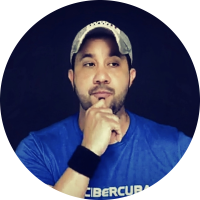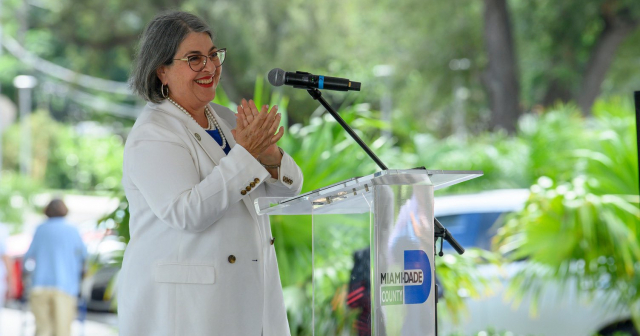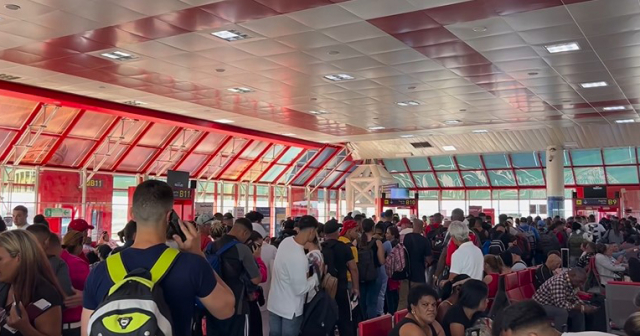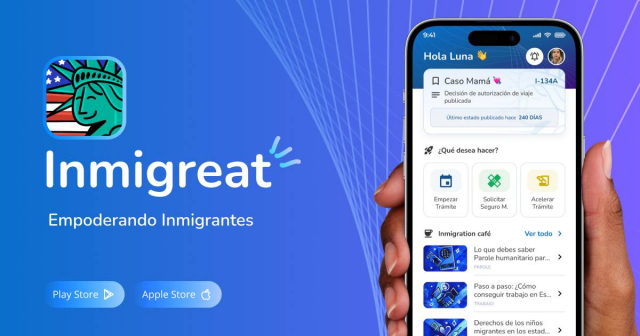“Many people find it scandalous, but the only thing this measure does is reinforce a requirement that has been in force for a century and a half,” the immigration lawyer told CiberCuba this Tuesday.Wilfredo “Willy” Allen in his Miami office. “Historically, the law states that if you are going to emigrate to the United States you cannot be a burden on the State. For that, someone must take responsibility for you.”
The “Public Charge Rule”, a severe restructuring of some parameters of immigration law, will come into force next October and unless it is successfully challenged in the country's courts, it could make access to the United States even more difficult. In fact, it is your goal.
“I am convinced that, as has happened with all the measures of this Administration against immigration to this country, this regulation is going to go through a tremendous legal fire of lawsuits and there is the eventual possibility that it may not even be implemented. However, it has already fulfilled its objective: to intimidate,” Allen added.
WHO WOULD BE THE MAIN LOST PERSONS?
The fundamental target of the measure is immigrants in a regular situation who use public funds. The new rules are based on the Immigration Act of 1882, which allows the US government to deny a visa to anyone who is likely to become a liability to the public purse.
According to the document presented by Donald Trump's Government to implement the measure, some 544,000 people apply for legal residency each year, and of these around 382,000 do so under categories that would be subject to reviews after the regulations come into force.
WILL CUBAN IMMIGRANTS BE AFFECTED?
Yes and no. It may sound paradoxical, but that's how it is.
While most of those already in the United States will escape the consequences, there are a considerable number who could be affected. And above all: the vast majority of those who are yet to arrive could suffer from it.
“Those who applied for Residency based on the Cuban Adjustment Law will not be affected, at least for the moment,” explains the lawyer. “The Refugee, Political Asylum and Cuban Adjustment categories are the only ones in this country that do not look at whether you receive benefits to grant you permanent residency.”
According to Allen, outside of these three categories, the United States can deny residency today, without the need for a future presidential decree, to those who are identified as public charges.
“In other words, if you applied for your Residency through a work or family procedure, your employer or your family member had to demonstrate that you would not be a public charge for the State. If later that commitment is betrayed and it is determined that that individual is not supported by his family member or employer, but by the State, USCIS has all the power to deny his Residence," the lawyer said.
However, the situation is worrying for those Cubans who entered the country due to direct family claims or commitment visas (fiancé). In none of these cases did the immigrant have to regularize their status under the Cuban Adjustment Law, and consequently, if they requested financial or food aid, they could fall under the new review.
Those in these two groups who have accessed health insurance under Obamacare, or receive assistance from Medicaid, could also be affected.
In addition, Cubans who entered the United States from Europe should also be alert:
“Cubans who enter with the travel permit to the United States (ESTA) mostly from the European continent, and then decide to stay here should visit their lawyers in case the measure is implemented,” Allen commented.
“The Department of Homeland Security's priority right now is to resolve the case of some 600,000 people who have stayed illegally in the United States after entering with tourist visas. "There are hundreds or thousands of Cubans who would also be affected."
WHO WILL EVALUATE WHETHER OR NOT RESIDENCY IS GRANTED?
“USCIS,” says Attorney Allen. “The Citizenship and Immigration Service will be in charge of evaluating whether the applicants have received aid. In addition, under this measure Immigration would take into account factors until now outside the parameters such as the applicant's education, salary and health."
USCIS Acting Director Ken Cuccinell was blunt during the announcement of the Public Charge Rule:
"We want self-sufficient people to come to the country. That is the basis of the American dream. Something deeply rooted in our history, particularly in our history of legal immigration," the official said.
What do you think?
COMMENTFiled in:






